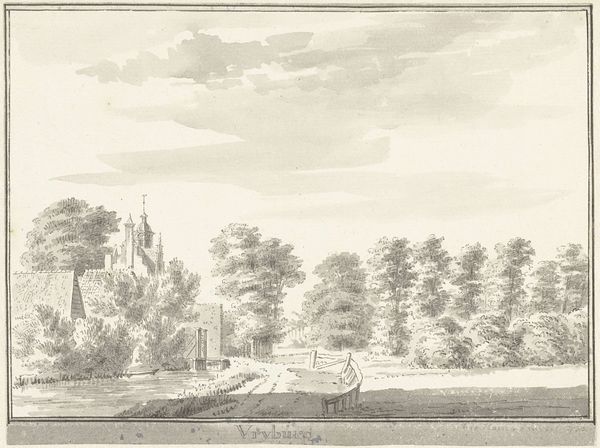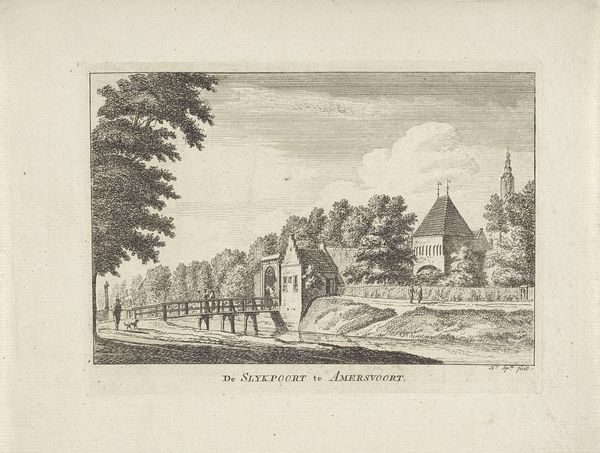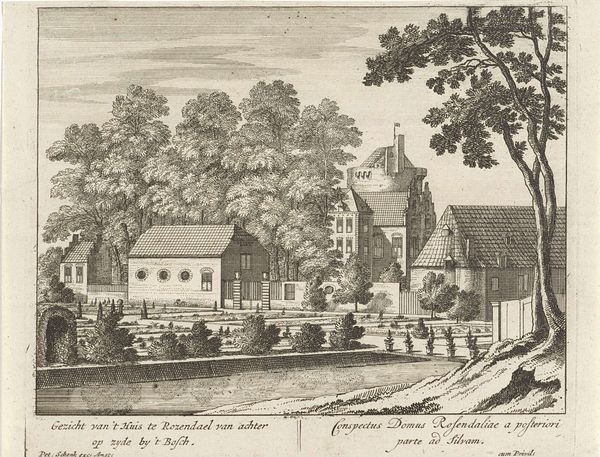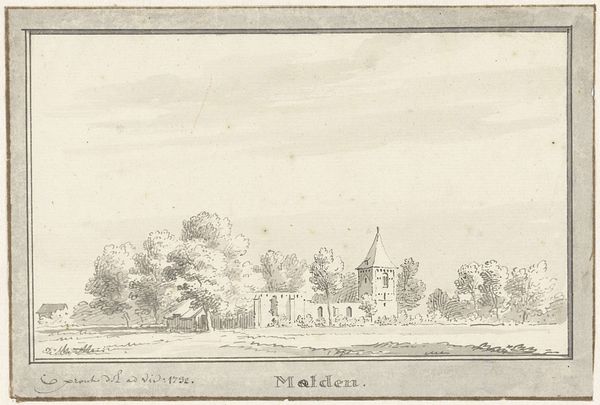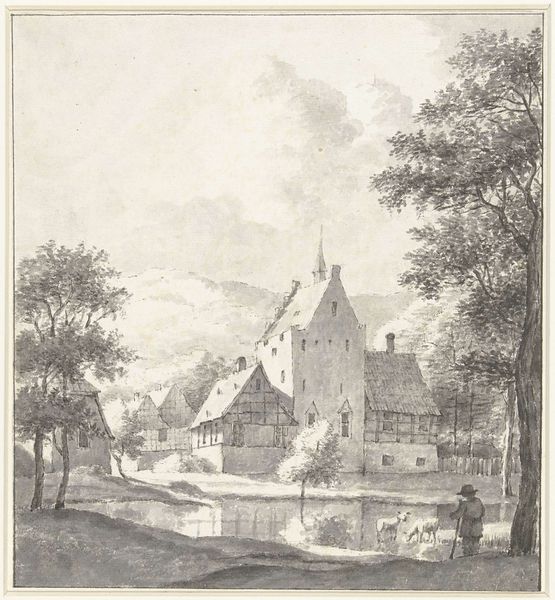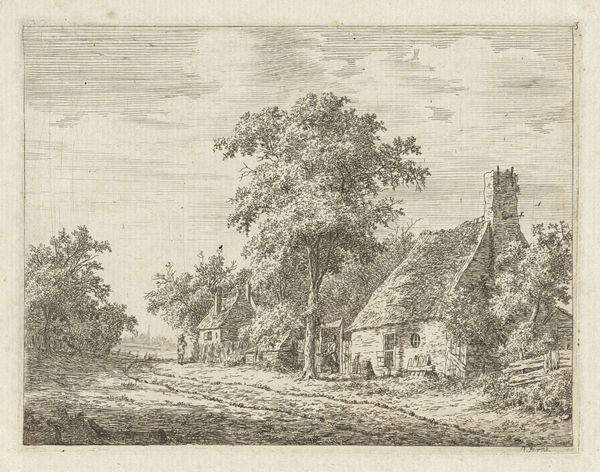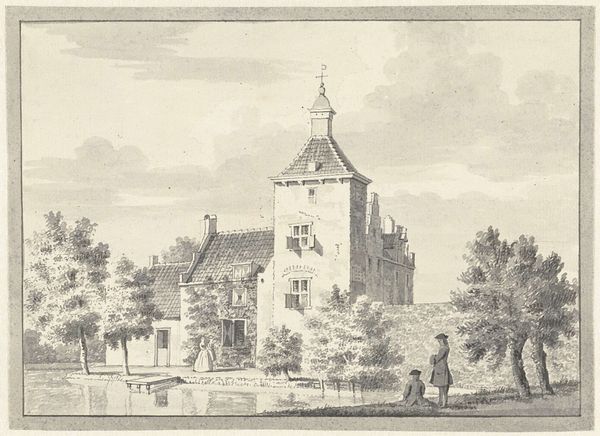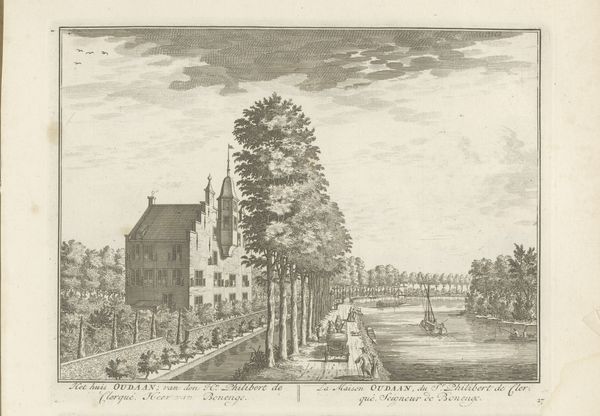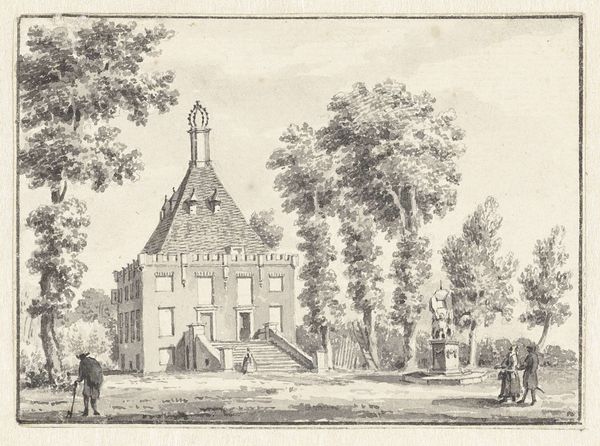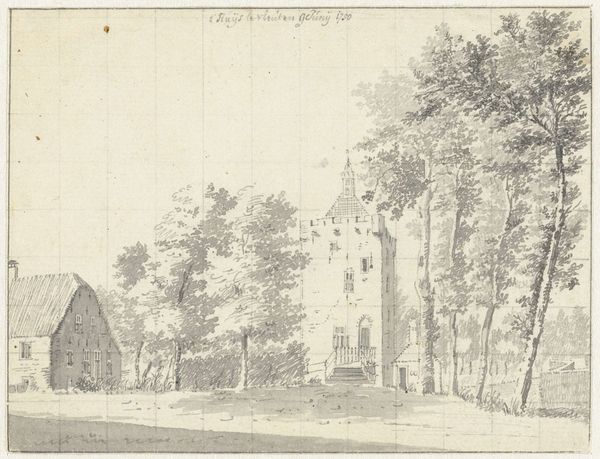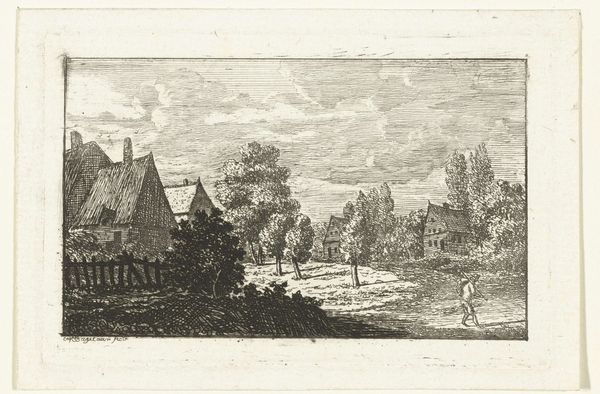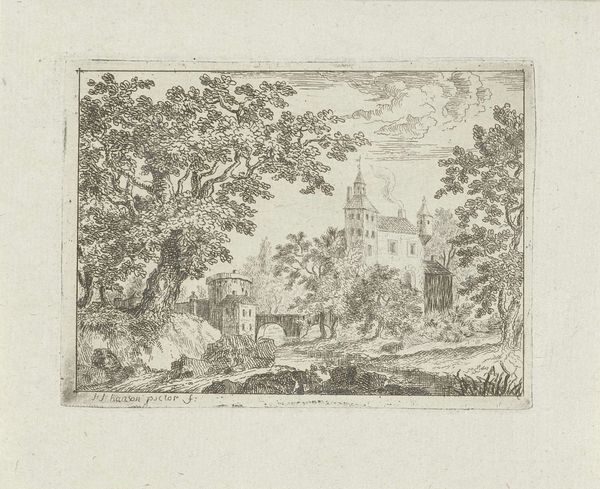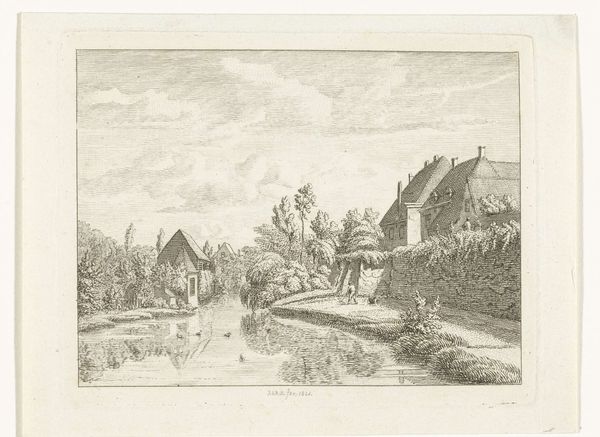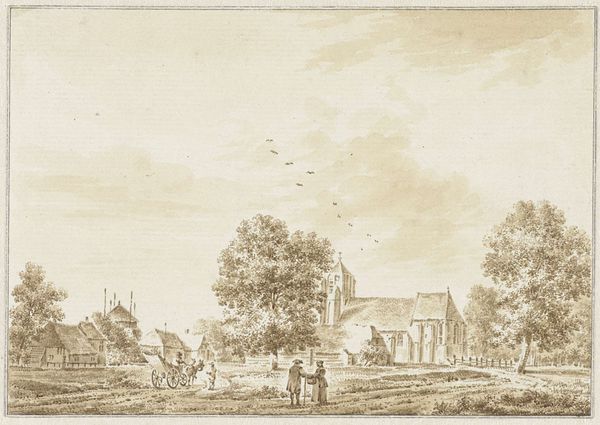
drawing, paper, ink
#
landscape illustration sketch
#
drawing
#
quirky sketch
#
dutch-golden-age
#
mechanical pen drawing
#
old engraving style
#
landscape
#
paper
#
personal sketchbook
#
ink
#
sketchwork
#
pen-ink sketch
#
pen work
#
sketchbook drawing
#
genre-painting
#
storyboard and sketchbook work
Dimensions: height 153 mm, width 185 mm
Copyright: Rijks Museum: Open Domain
Editor: This is "Het Huis Anem bij Wijhe," a drawing in ink by Cornelis Pronk from 1730. It looks like a quick sketch of a house nestled amongst trees, maybe a preparatory study. What symbols and cultural meaning can you find here? Curator: It's a seemingly simple scene, but consider the house itself. The structure projects aspiration; it whispers of lineage and status. Are those hints of classical design I see echoed in the facade, referencing an ancestral visual memory meant to grant the holder prestige? Editor: That's interesting, I was just focusing on the landscape! It looks very peaceful, idyllic even. Curator: Indeed, landscape itself carries considerable symbolic weight. Think about how nature in art evolves from a wild, threatening space to a tamed, picturesque backdrop for human endeavors. Notice how Pronk renders the trees—almost like guardians protecting a sacred place, contributing to its emotional landscape. The small figure nestled in the brush has been placed to invoke serenity through careful balance; almost echoing Eastern philosophies. Editor: So the setting is deliberately designed to evoke particular feelings and meanings, it isn't just an accurate depiction? Curator: Precisely! Every stroke contributes. Do you think that Pronk has captured this moment accurately or embellished certain elements, and why would they decide to highlight certain cultural memories or design aspects, while downplaying other elements to give the landscape this storybook mood? Editor: I hadn't thought about it that deeply before! It's more than just a pretty picture. I can now notice how every component blends cultural and emotional concepts. Curator: Absolutely! Visual language has a narrative, inviting you to explore how signs reflect, form, and transform cultural identity over time.
Comments
No comments
Be the first to comment and join the conversation on the ultimate creative platform.
